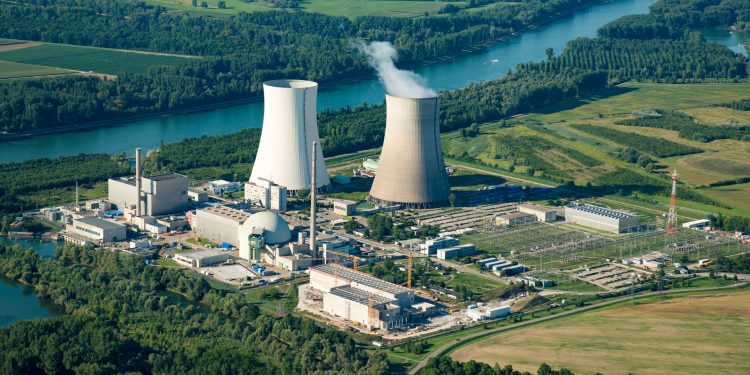Germany will seek talks with Switzerland on nuclear waste storage, Chancellor Olaf Scholz said Monday, as Berlin warned that a Swiss facility close to the border would “heavily burden” communities on the other side.
Germany would have to discuss the decision “through the usual channels with all those responsible in the Swiss government”, Scholz said at a press conference in Berlin.
Swiss authorities said Saturday they had selected a site in the north of the country, not far from the German border, to host a deep geological storage repository for radioactive waste.
A final decision is not due until 2029 but the announcement is unlikely to go down well in Germany where nuclear energy has long been a highly sensitive issue, dating back to the Cold War.
The location of the storage facility would “heavily burden communities on the German side”, a spokesman for the German environment ministry said at a regular press conference.
Conversations with the Swiss government over “compensation payments for regional development” had already taken place, the spokesman added.
After nearly 50 years of searching for the best way to store its radioactive waste, Switzerland is planning to bury spent nuclear fuel deep underground in clay.
Like Germany, the Swiss resolved to exit gradually from nuclear energy, following the 2011 Fukushima disaster in Japan.
The chosen location in Noerdlich Laegern is considered by Swiss authorities to be “the safest site for a deep geological repository”.
German officials would assess the Swiss decision, the environment ministry spokesman said, without giving a timeframe for a conclusion to be reached.
While the nuclear storage facility would be “a few kilometers” away from the border, certain “surface buildings” would only sit two kilometers (1.2 miles) from German territory, the spokesman said.
Currently, Switzerland’s nuclear waste is being stored in an “intermediary depot” in Wuerenlingen, some 15 kilometers from the German border.











